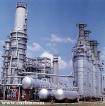| 1.
ASPHALTENES (molecular properties) 1.2
Thermodynamic or kinetic control ??
|
|||
|
Currently, in scientific modeling as well as in industrial applications natural petroleum media and their components (in particular, disperse phases) are commonly regarded as systems evolving under thermodynamic control. In other words, it is commonly assumed that physico-chemical parameters of petroleum are uniquely determined by the current thermodynamic parameters (first of all, by the current pressure ant temperature). These assumptions are employed for evaluation of the possible effects of various technological operations – e.g. thermal treatment in oil reservoirs, transportation and storage equipment; pressure depletion as a result of oil/gas production; intermixing of different migrating fluids in course of reservoir development, etc. In
particular, for asphaltene dispersions of critical importance are
their individual “thermal histories” in the range of industrial
temperatures.
E.g., a short-time thermal treatment at 28-30oC
results in a noticeable restructuring of asphaltene
colloids – dimension of colloid particles, as well as their interaction
energies, increase; interactions with other petroleum components also
are
strongly affected. At lower temperatures the new state of asphaltene
colloids
is thermodynamically non-equilibrium.
However, owing to kinetic control the newly-acquired properties may be
retained
over periods of several months/years (i.e. there is a certain “long-term
thermal memory”). |
|||
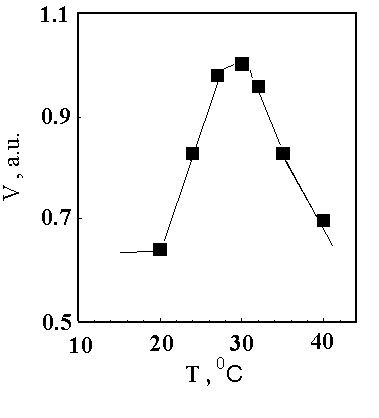 Temperature effect on an average volume of a particle in asphaltene colloids. (Fluorescence studies of model oils) |
|||
|
сссссс |
|||
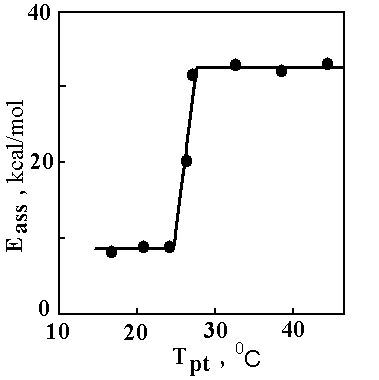 Effect of pre-heating temperature on association energy in asphaltene colloids at 8-18оС. (Rheological experiments with bitumen solutions) |
|||
|
|
|||
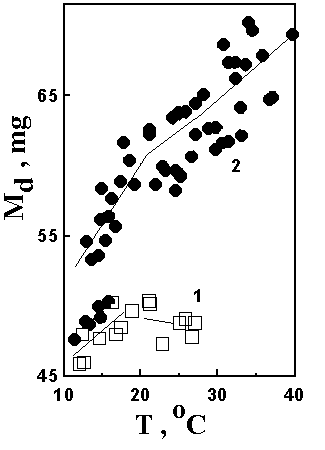 Markedly different behaviour of asphaltene
colloids in: (1) a thermodynamically equilibrium state and (2) a
long-lived metastable state induced by a short-time pre-heating to 28-30оС.
(Mass of deposits at steel surfaces immersed in bitumen solutions) |
|||
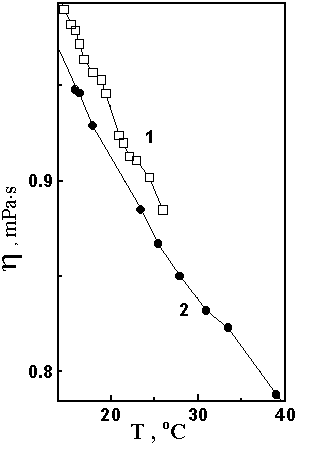 Markedly
different behaviour of asphaltene colloids in: (1) a thermodynamically
equilibrium state and (2) a long-lived metastable state induced by a
short-time pre-heating to 28-30оС.
(Dynamic viscosity of bitumen solutions) |
|||
|
|
|||
| Back to "
RESEARCH " page |
|||
|
|
|||
    
 |
|||
| Contact us at : physexp@gubkin.ru | |||
| Last Update : 29.03.2005 |



